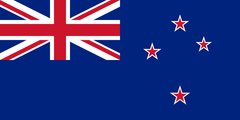Your Cart is Empty
Free Shipping on orders over $100 🚚
Free Shipping on orders over $100 🚚
Where is your Brain?
Your brain is amazing. Select your country's website to access the world's best scientifically proven Brainfood.
Neuroberries⁺ and Neuroscience
May 29, 2024 3 min read

When Ārepa was being formulated, the team needed someone with the expertise to ensure their product would support brain health. Neuroscientist Andrew Scholey was that person.
Professor Andrew Scholey is an expert on the effects of food and plants on brain health, having worked as a professor of human psychopharmacology in the UK and Australia. He has spent his career researching how the chemical components of the food we ingest interact with our brains, in ways both positive and negative, and has produced numerous pieces of in-depth research on the subject.
With a company-wide mission to support brain function, Ārepa sought the world’s most credible people in the brain health space, and Scholey was a key recruit. His expertise proved crucial in developing a formula for the drink aimed at having positive neurological impacts. In 2021, Scholey officially joined Ārepa as Chief Science Officer. His oversight ensures the company’s ongoing clinical studies meet internationally recognized standards. Speaking from Melbourne, he explains the science behind Ārepa and what you might feel when enjoying a drink made with Neuroberries⁺ rather than sugar and caffeine.
What’s your academic background, and why have you decided to focus on human psychopharmacology?
My background is in cognitive enhancement, particularly in nutrition and natural products that may improve mood and cognitive function. Part of the reason why this interests me is that when we think about the cognitive decline that occurs with aging and can lead to dementia, the pharmaceutical approach has often fallen short. At the same time, growing evidence suggests certain lifestyle factors like diet and exercise can support brain health and mental well-being. This has been my main area of research for around 30 years.
How did you end up working with Ārepa?
I initially helped them formulate their drink a few years ago. More recently, when Angus [Brown, co-founder of Ārepa] learned I was leaving academia, he asked if I was interested in joining the company as its Chief Science Officer. I receive many offers from industry partners to help design experiments and test their products, but I often turn them down if they're more marketing-driven than evidence-based. Ārepa's commitment to science and not overstating their findings made it an easy decision for me to accept. That was about three years ago now, and I’m very happy I did. Ārepa, a New Zealand-made drink.
The core ingredients in that original Ārepa formula are still the basis for Ārepa’s products today. One of these ingredients – and seemingly the most prominent – is something called a “Neuroberry⁺”. What is that?
The hero ingredient used in Ārepa is a carefully selected strain of Blackcurrant – that we call Neuroberry⁺ – known for its bioactive properties. They’re rich in anthocyanins, which are part of a larger class of flavonoids that give fruits and vegetables their rich colors. They’re also loaded with vitamin C, which supports normal neurological function.
What about Ārepa’s other core ingredients?
L-theanine, commonly found in green tea, (Suntheanine®) is a rare amino acid isolated from green tea through a fermentation process, making it caffeine-free. The other ingredient, pine-bark extract (Enzogenol®), is an ultra-pure extract from the bark of New Zealand-grown pine trees, a broad-spectrum polyphenol extract.
The brain is extremely energetic, consuming about 20-25 percent of the body’s energy even though it’s only about two percent of body weight. This high energy consumption makes the brain susceptible to oxidative stress, a byproduct of these processes. Therefore, it’s important to support brain health through diet and exercise.
Part of your role is overseeing some of the clinical trials Ārepa is conducting. Can you tell me what some of those clinical trials are about?
Several trials are examining the effects of Ārepa on various aspects of mental function. One ongoing study with the University of Wollongong and Dementia Centre for Research Collaboration Australia is investigating the “purple diet,” which includes Ārepa. This study examines whether the purple diet, rich in anthocyanins, can support normal neurological function, especially in those at risk of dementia. Delaying the onset of dementia by just five years could potentially halve the number of people affected.
We also have several trials in New Zealand and Australia investigating the longer-term effects of consuming Ārepa across different populations.
Professor Andrew Scholey is a neuroscientist specializing in human psychopharmacology with appointments at Monash and Swinburne universities. He has spent nearly three decades researching how diet, drugs, food, alcohol, and nutritional supplements influence the brain and behavior. His current work focuses on translating research findings into evidence-based claims for brain health, including in his role as Chief Scientific Officer at Ārepa.
*Please note, we are not claiming that Ārepa treats or cure any disease. Our products are designed to support overall health as part of a balanced diet and healthy lifestyle
Leave a comment
Comments will be approved before showing up.

















